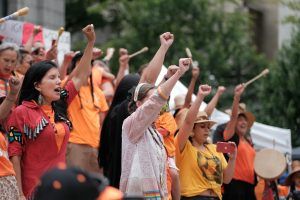
Engaging Migrant Communities in Open Government
Involucrando a las comunidades migrantes en el gobierno abierto
Migrant populations often face disproportionate obstacles to accessing information and participating in policy-making. Learn how OGP members are working to meaningfully engage migrant communities in their work, and explore recommendations for further impact.
En las últimas décadas, hemos sido testigos de un enorme aumento en los flujos migratorios. En 2020, se estimó que 281 millones de personas vivían fuera de su país de nacimiento, más del doble de lo registrado en 1990. El…









